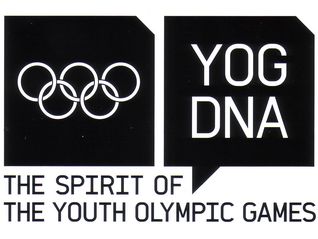International Olympic Committee (IOC) President Thomas Bach said Friday that any revisions to the 2030 Olympic Winter Games bid timeline is out of his hands.

Speaking to journalists following an Executive Board meeting held at IOC headquarters in Lausanne, Switzerland, Bach made clear – “this is in their hands.”
On Thursday the IOC announced that the 2030 host city election would be moved from May next year to either September or October 2023 due to changes to the all-members Session that was to be be held in Mumbai, India. Following various governance issues, the Indian Olympic Association (IOA) has been put on notice by the IOC to fall back into compliance with the Olympic Charter or face a suspension in December.
If the IOA is suspended, the planned Session will also be moved to a new location on the rescheduled date.
The election delay of at least four months eliminates the urgency for the Executive Board to name the final candidates for 2030 this December as planned and would allow for the ‘targeted dialogue’ to wait until the next Executive Board meeting in the spring.
But that decision is up to the Future Host Commission and its Chair Octavian Morariu, Bach said.
The bid race is being contested among British Columbia in Canada, Salt Lake City in the United States and Sapporo in Japan – all former Winter Games hosts. A delay might be helpful to the Vancouver-area bid that is struggling to meet current timelines while it tries to get approvals from provincial and federal partners.
Salt Lake City has hinted it may need to target 2034 instead of 2030 due to a conflict with the already-scheduled Los Angeles 2028 Summer Games. Sapporo is currently operating under the dark cloud of a Tokyo 2020 bribery scandal that is turning the public against the new Winter Games project.
Under bidding rules introduced in 2019, the IOC hopes to see all support and guarantees, including any required referendums, in place before the Executive Board moves it into the final stage of the process. This is designed to help eliminate any embarrassing last-minute dropouts that were seen frequently during the previous decade.
Under the current informal timeline, the selected candidates would have until February next year to submit final plans.
But all this can change if the parties need more time.
“This will be in the hands of the future host commission to see,” Bach said.
“Whether they still want to come to the EB in December or at a later stage.
“We have taken this decision [to delay Session] just yesterday so we informed the chair of the commission [Morariu] just yesterday evening or today in the course of the day so they will have to take these things into consideration then come up with a schedule.”
Bach went on to claim that his board would have no influence on the schedule.
“Their schedule is in their hands,” he said.
“The commission is part of our revolution of the process and this gives them a lot of autonomy.
“The Executive Board or I as president will not interfere into their procedures into their planning and into their agenda.”
On Thursday IOC spokesperson Mark Adams said bid teams had been notified of the changes and further discussions would be held.


